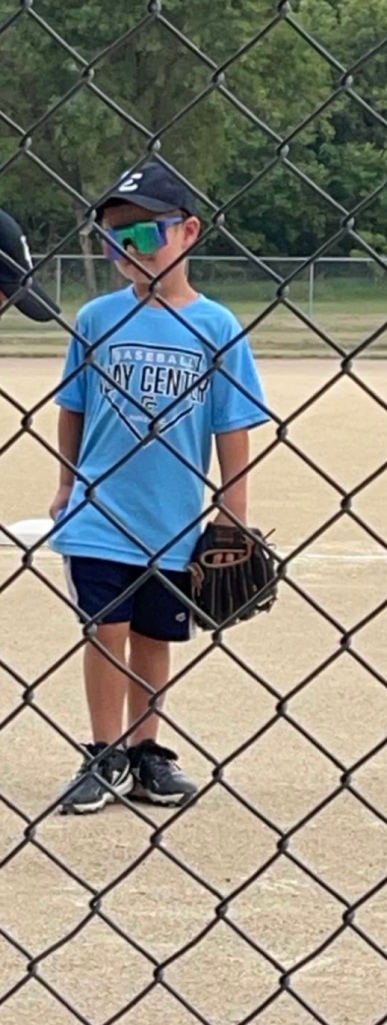I recently sat with a friend for a few peaceful minutes at our grandsons’ t-ball game. It was classic 4-6-year-old baseball. Bat hits the ball (after several violent swings with the bat knocking over just the tee) and it rolls across the infield. None of the dozen or so defenders in the field are paying attention because military helicopters are maneuvering in the airspace over town. Defying all laws of friction and physics, the ball rolls all the way to the outfield grass. Upon verbal prodding from the coaches, a group of defenders races to the ball and devolve into a scrum fighting over who gets to throw the ball to first base. One player eventually wrestles control of the ball and throws it within a city block of first base while another melts into tears in the outfield because that was “my ball”. The first baseman chases down the ball after verbal prodding from the coaches and launches it in the general direction of home plate where the next batter is waiting. (Thank God for backstops!)
The process is repeated until every batter on both teams has batted three times and then the teams line up, shake hands, and sprint to the dugout where the postgame treats are waiting.
A nearby parent mentioned to me how her husband, who is helping to coach one of the t-ball teams playing, privately mentioned to her how the way his kid and the others play drives him crazy. I laughed and agreed. I told her it was all about transitions. It’s the steps one has to go through to learn something new. Sports, or any other endeavor, are about improving through a series of transitions. We can also call it “leveling up”.
It’s the Fail Cycle. Try something. Fail. Step back. Evaluate. Work hard. Try again. Repeat until successful. Try something harder.
In baseball, there are transitions.
- No idea how to play the game to the t-ball basics.
- T-ball basics to coach or machine pitch.
- Coach or machine pitch to kid pitch. A (HUGE transition landmark that can be very frustrating to watch and has been known to burn the eyeballs of the fans.)
- Kid pitch to full-on competitive baseball.
- The challenging transitions as one progresses up the competitive baseball ladder.
One of the harsh realities of sports is you work through the transitions to level up or you don’t and stagnate. These transitions get progressively harder and often become the point where individuals quit playing the game. Middle school to high school to college to the minor leagues to the major leagues all involve challenging transition periods for the athlete.
Transition periods are always challenging and rarely things of beauty.
As an adult or advanced player in any sport, it’s often frustrating to coach or parent inexperienced individuals. There’s often an assumption the kids know what they should be doing. As adults on the other end of the playing rainbow arc, the exit side, we often forget that kids beginning their journey on the entry side don’t know what we know and can’t do what we do. They’re on the uphill side of that playing arc, with emphasis on uphill, looking and searching for handholds and footholds to move upward and onward in their playing career. These handholds and footholds often take time for each individual to find.
They need a guide through the transitions. That is where coaches and parents do their work. That’s where instead of frustration, you teach and encourage. You work to develop and perfect the developmental skills of the game. The parent and coach must nurture trust and drive in each individual.
You must listen and trust their judgment and decisions while only gently nudging when absolutely necessary. This is important because they need to have the agency and freedom to pursue their dreams as far as they want to go with them. The higher the leveling up goes, the more it requires hard work, sacrifice, and risk to reach the next handhold on the steepest developmental slope where competition is most fierce.
Moral of the story. Next time you’re at a beginner-level event, whether sports, music, art, etc., remember this particular event is an early transition, not a finished and polished product. Enjoy the ride because tomorrow’s performance is often better than today’s, even if today’s performance consisted of 50 pitches with only 12 of those being close enough to home plate to be called a strike.
Celebrate the baby steps. Transitions are just part of any journey.





